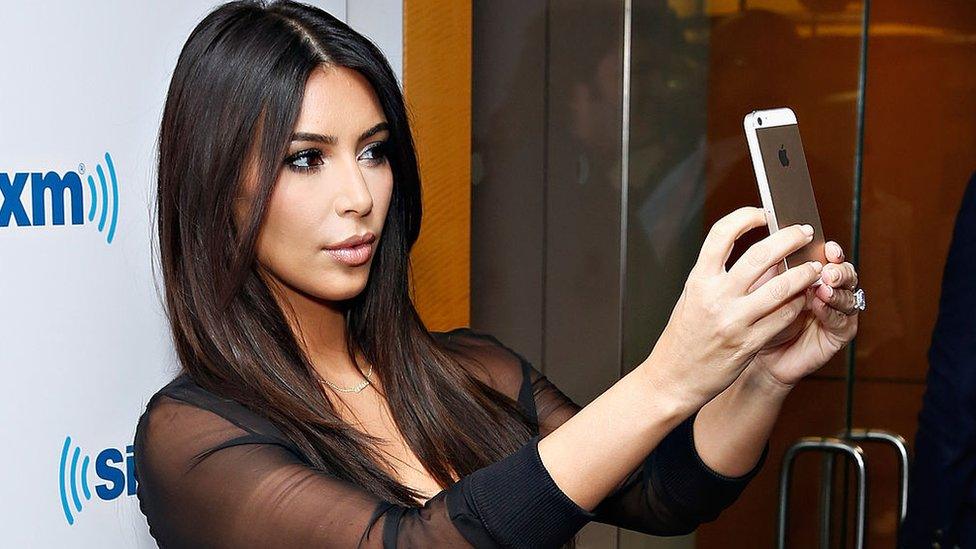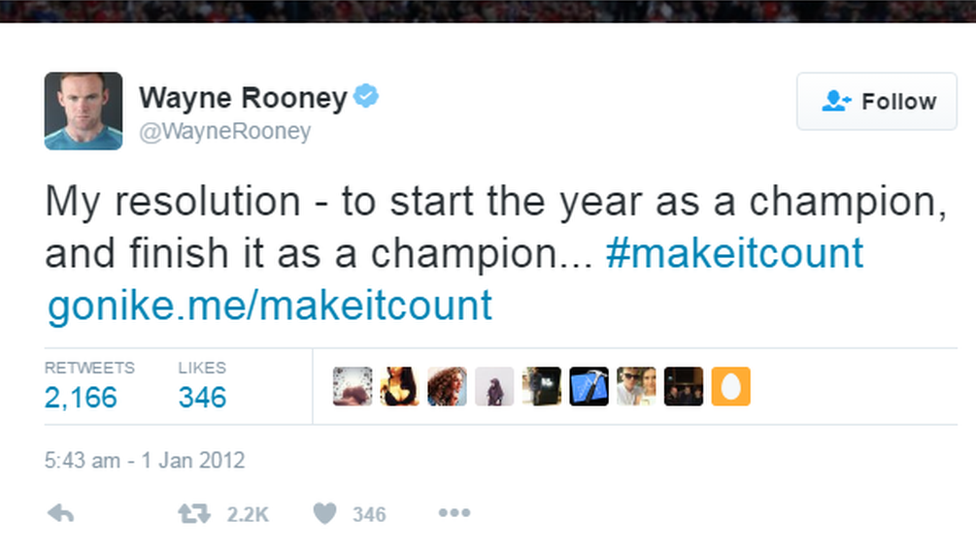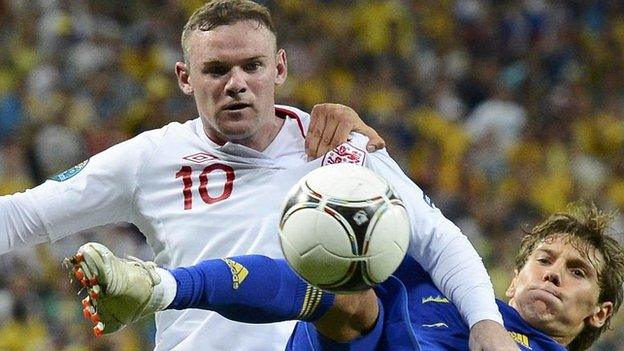Celebrity YouTube promotion fee '$187,000 on average'
- Published

Kim Kardashian recently promoted hair vitamins on her official Instagram account
YouTube personalities charge an average of $187,500 (£143,000) for each sponsored video, a talent agency says.
San Francisco based Captiv8 said internet "influencers" with a following of three to seven million people could also make $75,000 on average for a promotional post on Instagram.
A native advert on Twitter cost about $30,000 on average, it added.
The Advertising Standards Authority said these posts must be properly marked as advertisements.
Celebrities and their agents have in recent years found lucrative opportunities to endorse goods and services across social media and video websites.
Last week, Kim Kardashian published a video clip on Instagram in association with the hair vitamins provider SugarBear Hair.
The message began with the hashtag #ad - which denotes it as an advertisement - and read: "Excited to be partnering with @sugarbearhair to share their amazing hair vitamins with you! These chewable gummy vitamins are delicious and a favourite part of my hair care routine."
Such adverts can bring in serious money if your subscriber numbers are high, according to Captiv8, a marketing company that brokers social media deals.
According to Captiv8's data, which was given to the New York Times, external, "someone with three million to seven million followers can charge, on average, $187,500 for a post on YouTube".
It added that $75,000 was the average fee for "a post on Instagram or Snapchat", while $30,000 was the charge for a message on Twitter.
One digital marketing agency that spoke to the BBC said Captiv8's findings seemed "possible but a little high", while another said the number was "not surprising at all". Both asked not to be named.
Influencers with a more modest following on social media still stand to make meaningful income from native advertisements.
Personalities with 50,000 to 500,000 followers can make $2,500 per YouTube ad, and $1,000 for an Instagram post.

In 2012 the ASA banned a Nike promotional campaign published on Wayne Rooney's Twitter feed after ruling it had not been clearly "identifiable as marketing communications"
Hashtag Ad
The Advertising Standards Authority, which regulates advertisements across TV, print and the web, says these promotional posts must be clearly marked.
"If a social media user has been paid to post something and does not have editorial control over the post, then it becomes an ad," an ASA official told the BBC.
"In this instance, they need to label the post appropriately and clearly state it is an ad.
"This label must be immediately obvious to the reader before they engage in watching or reading the post."
Gifts and other perks should technically be deemed as payments, it added.
The ASA regulates adverts produced and distributed in the UK only.
In 2012, it banned a Nike promotional campaign published on footballer Wayne Rooney's Twitter feed after ruling it had not been clearly "identifiable as marketing communications".
However, to this day the Tweet remains online, external.
Then two years later, the ASA blocked a series of YouTube videos that promoted a challenge to an Oreo biscuit "lick race".
Meanwhile, in July, Warner Bros reached a settlement with the Federal Trade Commission, after the entertainment group was found to be paying YouTube personalities for promotional videos of its game Shadow of Mordor.
- Published20 June 2012
